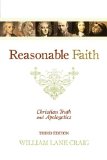The following is an edited combination of two posts I put up on my personal blog almost a year ago. After a conversation of sorts with a commenter on my Maher-ulous post, I thought these were germane to the discussion (tangentially, at least).
I’ll begin with a scene from a Simpsons episode:
Flanders:(reading softly to Rod and Todd)…And then Harry Potter, and all his friends…went straight to Hell for practicing witchcraft!
Rod and Todd: Yay!!!
My brother bought me the Harry Potter anthology for my birthday this past fall. I started them after the Christmas holiday and was instantly aware of why the books enjoy such outrageous popularity: they’re very entertaining (go figure). I finished book 7 just last week, and have to admit, I’m sad that there are no more left to read.
Of course, as a Christian, I am accutely aware of the controversy surrounding these books. So aware, in fact, that I’m going to address this controversy very little in this post. Instead, I want to think about a bigger issue: Should Christians ever “forbid”, “ban,” or even disregard ceratin media?
We might also consider how the content of said media plays into our choice. Compare the Harry Potter series with something like Pullman’s “His Dark Materials.” The former is just Halloween made real, while the latter is a subtle (though ferocious), attack against the Christian worldview (per the author’s own admission). What about Nietzsche? Dawkins? Harris?
Like most matters in life, I think a blanket answer is impossible, but here are some initial thoughts:
1) If a Christian man or woman has never had any serious interaction with something that challenges their world view, I would maintain that their faith and witness is significantly weakened. I strongly believe that faith is like a muscle: if it is not used, it atrophies; moreover, if it is not challenged, it will not grow.
2) Christians must thoughtfully engage with their culture. Automatic and uneducated dismissal of non-Christian media is horribly damaging to our witness in the world. This doesn’t require that we live ever-immersed in non-Christian books and films, but it does mean that we at least consider them thoughtfully as they come into public view.
3) We should guard ourselves agaisnt stumbling blocks. If a particularly raunchy movie comes out to much fanfare and discussion, there are ways I can learn about it without compromising my purity (e.g., Wikipedia, IMDB, Amazon). Clearly, we shouldn’t watch pornography so that we can better interact with the millions caught in its snares.
4) As parents, we certainly must take great care in how we walk the balance of guarding our children against that which might harm them, and teaching them to stand firm in a hostile world (c.f., point #1). Pray for wisdom.
So, should Christians ever ban, forbid, or disregard certain media? My answer, for those who want to read between the lines, is “no” with a “but.” The “no” stems largely from the fact that I believe Christians must thoughtfully engage their culture. The “but” finds most of its basis in stumbling blocks: We have to be watchful of what we ingest, and how much. Moreover, what we ingest may also impact our brothers and sisters around us (c.f., 1 Cor. 8:9-13; 10:31-33).
The matter of media becomes much more complicated with respect to children. As I watch my son grow up, I’m already thinking ahead to how I balance protection with allowing an instructive bump or bruise. Of course, with the Harry Potter books, I find them as harmless as any other fiction I’ve read. I will be quite comfortable letting Henry read them when he’s of age, and will lose little sleep wondering if he’ll become Wiccan as a result.
One anonymous commenter has expressed certainty that children wouldn’t pick up on religious subtexts within books (e.g., Potter, Narnia, His Dark Materials). I think this is a tough nut to crack, so I’m not as certain. As Danny mentioned, their (our) worldview is shaped, sometimes subtly, sometimes dramatically, by our culture, and what our minds ingest day to day. If a child (or adult) reads many books with a strong anti-authority or anti-institution bias (e.g., His Dark Materials, Catcher in the Rye) it is quite possible that s/he may begin to develop a suspicion of authority in part thanks to these books.
Now, again, this isn’t intrinsically wrong. In my anonymous poster’s words, “Isn’t it better to allow, and even encourage, our children to read these books, even the most controversial, and then provide the opportunity for safe, frank discussion of the issues therein?” Yea and Amen.
What we mustn’t forget, however, is that sometimes these “issues” are hard to get at, because they are subtexts: they’re subtle, and often dovetail very nicely with the cultural milieu. They are the unexamined assumptions that litter our culture today: We don’t really know whence they came, but they’re always there, coating the lens through which we view the world. In this way, I would almost prefer overt assaults on Christianity over and against the subtle ones: they’re easier to target and discuss.
This just to say that with regards to media, we must be prepared to carefully examine the assumptions and subtexts in what our children read. Note that said assumptions aren’t necessarily bad. Take Harry Potter: (1) There’s a very clear line drawn between good and evil. Even more, Human egalitarianism is clearly associated with the “good” and cultural elitism is clearly associated with “evil.” (2) The theme of friendship is honestly portrayed, complete with arguments and reconciliations. (3) Self-sacrifice for a greater good is a neon sign throughout.
So, read and watch everything, and let your kids do the same (age appropriate and within reason, of course!) BUT be ever ready to uncover and examine the unsaid but implied, good and bad. I would go so far as to say that we would do well to apply such advice to anything we encounter.
Finally, I would add that we should be sure to watch our diet: Watch and read everything, yes, but be sure that you’re spending copious time engaging with the Truth, too. Harry Potter will entertain, but God’s Word will sustain. Assaults on our faith can challenge and strenthen us, but so also can the Word. Let’s thoughtfully engage on both ends, and all across, the spectrum. Given our fallen world and hearts, I submit that the scales of our diet should always tip towards “whatever is true, whatever is noble, whatever is right, whatever is pure, whatever is lovely, whatever is admirable…or praiseworthy” (Php. 4:8). Even more, “whether [we] eat or drink or whatever [we] do, [let’s] do it all for the glory of God” (1 Cor. 10:31).










